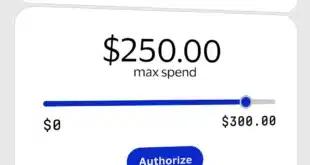The National Automated Clearing House Association is mulling an idea for a new point-of-sale electronic check product that it hopes might overcome some of the obstacles its existing POS service, called POP, has run into. Tentatively called “back-office conversion,” or BOC, the idea would allow merchants to send all checks collected in their checkout lanes to a back office, where those eligible for conversion into electronic checks would be so converted and transmitted over the ACH. Unlike POP, the new payment type would not require cashiers to be trained in distinguishing eligible from non-eligible items and would not require signed authorization from the consumer. Instead, a sign posted near the POS notifying customers that their checks will be converted would suffice, similar to the notice given to consumers whose checks are converted into e-checks when they arrive at billers' lockboxes under another ACH payment type known as ARC. In this way, BOC could speed checkout while cutting hardware and software costs for merchants, since check scanners would not be needed in all lanes and existing cash register systems could be left alone. The cashier training, signed authorization, and cost issues have all tended to restrain growth in POP, which accounted for 148 million transactions in 2003, compared to 160 million for ARC and 500 million for WEB, or ACH payments on the Internet. Under NACHA rules, only checks drawn on consumer accounts are eligible for electronic conversion. But the BOC idea is a long way from reality, according to Daniel L. Miner, senior director of electronic check and risk management services at Herndon, Va.-based NACHA, who presented it at a NACHA conference on e-checks this week in San Francisco. He hopes to introduce the idea to the association's rules and operations group this fall, but doesn't see any prospect of it rolling out, if it wins final approval from NACHA, until 2006 at the earliest. Among the challenges the idea confronts are check security and the potential for consumer confusion, since the idea doesn't contemplate replacing POP. Under BOC, checks would not be returned to the customer, as they are under POP, but would be kept by the merchant. This, says Miner, could create fraud potential if the checks aren't imaged and destroyed, and are not stored securely after their payment and MICR data are captured. “We are concerned [about that],” he said, adding that, despite the challenges, he sees enough “promise” in the idea to pursue it.
Check Also
AI Commerce Gets a Boost From Visa, PayPal, and Mastercard
Visa Inc. late Wednesday introduced Visa Intelligent Commerce, an artificial intelligence-based shopping service that enables …




